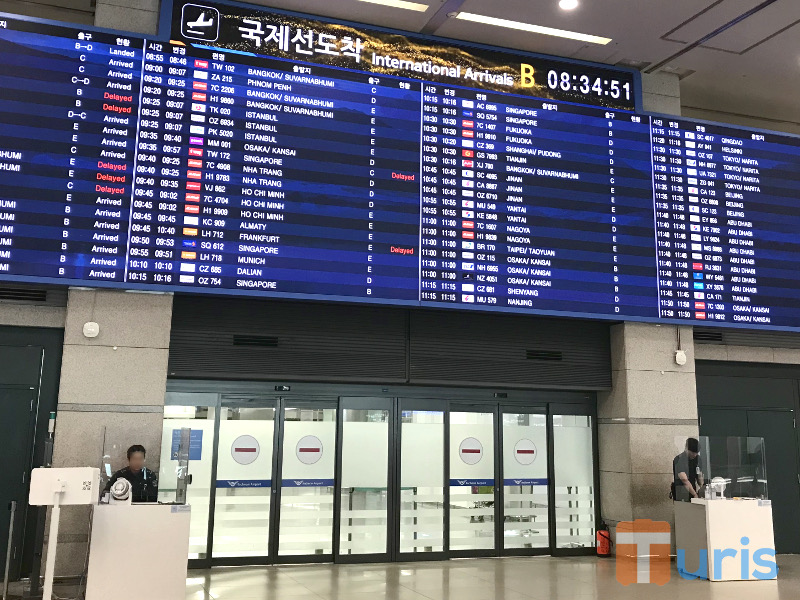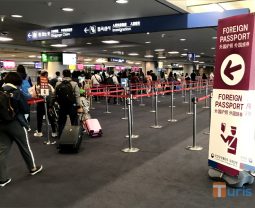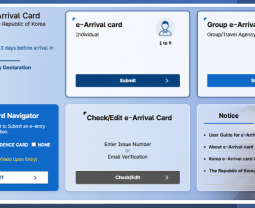Note: The list of countries has been updated in the latest article about Q-Code requirements (October 2025 version). Content of this article is provided primarily for tracking and archival purpose.
Starting from July 15th 2023, South Korea applied the relaxation of Q-Code requirement for travelers entering South Korea. Under the new policy, travelers will not be required to register and present Q-Code or submit health declaration form when passing through the health screening checkpoint at the airport or sea port. However, it may not be widely known that the Q-Code removal policy was not universally applied.
Some countries are still not exempted from the removal of Q-Code requirement. Passengers from certain countries embarking on an airplane or ship bound to South Korea are still required to register for Q-Code or submit health declaration form upon entering South Korea. Such variability on the implementation of the policy was imposed to facilitate the shifting of the purpose of Q-Code. Initially, Q-Code was developed as a digital system to monitor Covid-19 spread through inbound travel. As Covid-19 spread eased and risk level downgraded to that of influenza, Q-Code was then transformed into a more generic digital system to monitor possible transmission of other infectious diseases through inbound travel from moderate or high risk countries to Korea.
Korea Disease Control and Prevention Agency (KDCA) has determined several infectious diseases with quarantine requirements that must be monitored through Q-Code. The diseases include cholera, polio, yellow fever, MERS, animal influenza (bird flu, swine flu), ebola (ebola virus disease), and pest. For each disease, moderate and high risk countries have also been determined. If a country is included in the list, all passengers regardless of nationality would then be required to register for Q-Code or submit health declaration form upon entering Korea.
Note:
This list was valid until December 31st, 2023. For the list of countries with Q-Code requirement from January 1st, 2024, you can check out the updated list.
According to the latest announcement from KDCA that was published at the end of August 2023, 74 countries are currently put into disease quarantine control management through Q-Code registration. The countries were spread across three continents: 23 countries from Asia, 37 countries from Africa, and 14 countries from American continent. The list of the countries can be seen in the following table.
| No | Continent | Country | Disease under Monitoring |
| 1 | Asia | Nepal | Cholera |
| 2 | Lebanon | Cholera, MERS | |
| 3 | Mongolia | Pest | |
| 4 | Bahrain | MERS | |
| 5 | Bangladesh | Cholera | |
| 6 | Saudi Arabia | MERS | |
| 7 | Syria | Cholera, MERS | |
| 8 | United Arab Emiteras | MERS | |
| 9 | Afghanistan | Cholera, polio | |
| 10 | Yaman | Cholera, polio, MERS | |
| 11 | Oman | MERS | |
| 12 | Jordania | MERS | |
| 13 | Iraq | Cholera, MERS | |
| 14 | Iran | MERS | |
| 15 | Israel | Polio | |
| 16 | India | Cholera | |
| 17 | Indonesia | Polio | |
| 18 | China | Pest, animal influenza | |
| 19 | Qatar | MERS | |
| 20 | Cambodia | Animal influenza | |
| 21 | Kuwait | MERS | |
| 22 | Pakistan | Cholera, polio | |
| 23 | Philippines | Cholera | |
| 24 | Africa | Ghana | Polio, yellow fever |
| 25 | Gabon | Yellow fever | |
| 26 | Gambia | Yellow fever | |
| 27 | Guinea | Yellow fever | |
| 28 | Guinea Bissau | Yellow fever | |
| 29 | Nigeria | Cholera, polio, yellow fever | |
| 30 | South Sudan | Cholera, yellow fever | |
| 31 | Niger | Cholera, polio, yellow fever | |
| 32 | Liberia | Yellow fever | |
| 33 | Madagascar | Pest | |
| 34 | Malawi | Cholera, polio | |
| 35 | Mali | Polio, yellow fever | |
| 36 | Mauritania | Yellow fever | |
| 37 | Mozambique | Cholera, polio | |
| 38 | Benin | Cholera, polio, yellow fever | |
| 39 | Burundi | Cholera, yellow fever | |
| 40 | Burkina Faso | Yellow fever | |
| 41 | Senegal | Yellow fever | |
| 42 | Somalia | Cholera, polio | |
| 43 | Sudan | Yellow fever | |
| 44 | Sierra Leone | Yellow fever | |
| 45 | Algeria | Polio | |
| 46 | Angola | Yellow fever | |
| 47 | Ethiopia | Cholera, yellow fever | |
| 48 | Uganda | Yellow fever, ebola | |
| 49 | Zambia | Cholera | |
| 50 | Equatorial Guinea | Yellow fever | |
| 51 | Central African Republic | Polio, yellow fever | |
| 52 | Zimbabwe | Cholera | |
| 53 | Chad | Polio, yellow fever | |
| 54 | Cameroon | Cholera, polio, yellow fever | |
| 55 | Kenya | Cholera, yellow fever | |
| 56 | Ivory Coast | Yellow fever | |
| 57 | Congo | Yellow fever | |
| 58 | Democratic Republic of the Congo | Cholera, polio, yellow fever, pest, ebola | |
| 59 | Tanzania | Cholera | |
| 60 | Togo | Polio, yellow fever | |
| 61 | America | Guyana | Yellow fever |
| 62 | Venezuela | Yellow fever | |
| 63 | Bolivia | Yellow fever | |
| 64 | Brazil | Yellow fever | |
| 65 | Suriname | Yellow fever | |
| 66 | Argentina | Yellow fever | |
| 67 | Haiti | Cholera | |
| 68 | Ecuador | Yellow fever | |
| 69 | Colombia | Yellow fever | |
| 70 | Trinidad & Tobago | Yellow fever | |
| 71 | Panama | Yellow fever | |
| 72 | Paraguay | Yellow fever | |
| 73 | Peru | Yellow fever | |
| 74 | French Guiana | Yellow fever |
If you travel to Korea from the country in the quarantine control management list above, are you required to register Q-Code when entering Korea?
Yes, if you enter Korea directly from the country in the list, you still have to register Q-Code when entering Korea. However, if you travel to Korea using transit flight, you may not be required to register Q-Code if the country of transit is not in the quarantine control management list. As an example, let’s assume that you travel by plane to Korea with layover in Hong Kong. Once you arrived in Korea, big chance you will not be asked to submit health declaration form or present Q-Code at the health screening checkpoint. This is since Hong Kong is not in the quarantine control management list.
When will the quarantine requirement be lifted for the countries in the quarantine control management list?
The government of Korea through Korea Disease and Prevention Control Agency update the quarantine control management list every three to six months. The latest publication was in August 2023. It is expected that the list will be updated before the end of year 2023. Some countries in the list may be removed and some other countries can be added into the list depending on the consideration of Korean government related to the trend of infectious disease cases in each country.
So, is Q-Code still required to enter Korea?
Both yes and no. Yes, Q-Code is still required if your country of embarkation is in the quarantine control management list. At the health screening checkpoint, you will be asked to present Q-Code or submit health declaration form to the health officer. In contrast, if your country of embarkation is not in the disease quarantine control management list, Q-Code is no longer required. You will not be asked to register Q-Code nor submit health declaration form when entering Korea.






